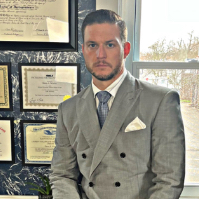Osseo Criminal Lawyer, Michigan
Sponsored Law Firm
-
 x
x

Click For More Info:
-
Hannawa Law PC
2909 E Big Beaver Rd Troy, MI 48083» view mapCriminal Defense Law Full-service legal experts on your side.
Whatever the specific details of your situation may be, our attorneys are ready to fight for you and guide you through every step of the process.
248-466-0770
Daren Andrew Wiseley
✓ VERIFIEDCriminal, Constitutional Law, State Trial Practice, Civil Rights
As a Hillsdale County native, Daren Wiseley is thrilled with the opportunity to serve his home community. He focuses his practice on criminal defense ... (more)
 Nickolas Hannawa Troy, MI
Nickolas Hannawa Troy, MI AboutHannawa Law PC
AboutHannawa Law PC

